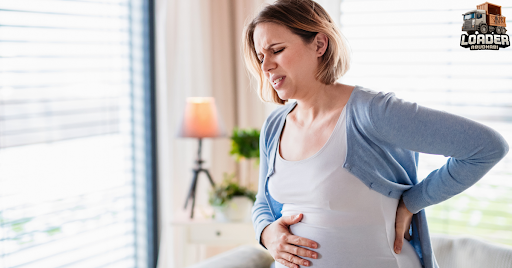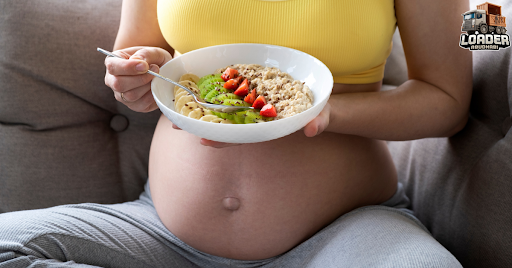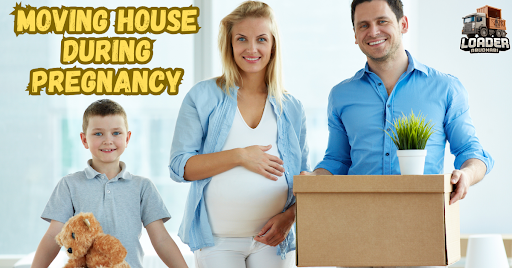Moving to a new house can be an exciting yet stressful experience. Add pregnancy into the mix, and it can seem overwhelming. Whether you’re upgrading to a bigger space for your growing family or relocating for a better neighborhood, moving house during pregnancy requires careful planning and preparation. With the right strategies, you can make this process smooth and stress-free for you and your baby.
In this guide, we’ll address key concerns like safety, timing, and stress management. By following these practical tips, you can move house with confidence while prioritizing your health and well-being.
Is Moving House During Pregnancy Safe?
The first question most expectant mothers ask is: “Is it safe to move during pregnancy?” The answer is yes—as long as you take the right precautions. According to studies in the Journal of Epidemiology & Community Health, moving house during pregnancy does not directly cause premature birth or low birthweight. However, it does come with relative risks that need careful attention.
Moving involves physical strain, biological stress reactions, and sometimes interruptions in healthcare services, all of which can impact your well-being. If you’re at a higher risk of complications, such as premature labour rates or physical exertion issues, consult your healthcare provider or clinician before finalizing your move.
Remember, every pregnancy is unique, and safety should be your top priority. Whether it’s avoiding heavy lifting or managing stress levels, the goal is to minimize unnecessary risks.
When Is the Best Time to Move During Pregnancy: Before or After Baby?
Timing your move is essential when you’re pregnant. While the decision depends on personal circumstances, the second trimester (weeks 14 to 27) is generally considered the best time to move. Here’s why:
In the first trimester, symptoms like nausea, fatigue, and morning sickness can make moving extremely challenging. It’s also a sensitive period where the risk of complications like premature birth or miscarriage is slightly higher.
On the other hand, the third trimester comes with its own challenges. Increased fluid retention, back strain, and limited mobility can make packing, organizing, and cleaning much harder. Additionally, the risk of going into labor increases as you get closer to your delivery date.
Moving during the second trimester allows you to take advantage of improved energy levels and reduced discomfort. It’s also a great time to start planning and preparing your new home for your baby’s arrival.
Planning the Perfect Moving Date: Choosing What Works for You
Choosing a moving date that aligns with your pregnancy milestones can reduce stress significantly. Start by evaluating key factors like your delivery date, work commitments, and family availability.
First, plan around your antenatal appointments and any scheduled hospital visits. You don’t want to miss critical check-ups while managing a hectic move. Secondly, allow enough time for rest and recovery after the move. This ensures you’re settled before your baby arrives.
Avoid moving too close to your final trimester, as the physical strain can add unnecessary risks. If you’re unsure about the best timing, consult your midwife or healthcare provider for personalized advice.
Essential Safety Tips for Moving During Each Trimester

First Trimester
During the first trimester, focus on minimizing physical and emotional stress. Delegate tasks like heavy lifting to professional removal services or family members. Take frequent breaks, and don’t push yourself to finish everything at once.
Second Trimester
This is the ideal time to organize and plan your move. Focus on light tasks like decluttering, packing non-essentials, and setting up the nursery in your new home. Use eco-friendly cleaning products to avoid exposure to harmful chemicals, such as bleach, ammonia, or paint fumes.
Third Trimester
In the final trimester, prioritize your comfort and safety. Avoid physical activities that could trigger premature labour or strain your body. Instead, oversee the moving process and let others handle the heavy work. Keep your hospital bag ready in case you go into labor unexpectedly.
Staying Healthy and Stress-Free While Moving House
Your health should be the top priority during any house move. Stress and exhaustion can take a toll on both you and your baby, so it’s crucial to practice stress-mitigating techniques.
Start by taking short breaks throughout the day to rest and recharge. Gentle activities like walking or deep breathing exercises can help keep stress levels under control. Stay hydrated and eat balanced meals rich in vitamins and nutrients to maintain your energy.
If you’re feeling overwhelmed, reach out for social support. Your partner, family members, or close friends can provide emotional and physical assistance during this busy time.
Packing Early and Staying Organized to Reduce Stress
When it comes to moving house during pregnancy, staying organized is key. Start packing well in advance to avoid last-minute stress. Focus on one room at a time and pack non-essential items first, such as books, camping gear, or out-of-season clothing.
Label each box clearly, and keep essentials like baby items and hospital documents easily accessible. Invest in sturdy boxes to protect fragile items and avoid overloading them to prevent injury.
Use this time to declutter and get rid of items you no longer need. A clean and organized space will make settling into your new home much easier.
Hire Professional Help: Why You Shouldn’t Do It Alone
Moving house is physically demanding, and when you’re pregnant, it’s best to let the professionals handle the heavy lifting. Hiring a removal service can save you time, energy, and unnecessary strain.
A reliable team can manage tasks like packing, loading, and unloading boxes while you focus on resting. This is especially important if you’re experiencing pregnancy-related issues like back strain, joint pain, or pubic symphysis dysfunction.
Although hiring help comes with a cost, it’s a worthwhile investment to ensure a safe and stress-free move.
Looking After Yourself: Rest, Nutrition, and Listening to Your Body

Your body undergoes significant changes during pregnancy, so it’s essential to listen to its signals. If you’re feeling tired, take a break. Prioritize rest and make time to sit or lie down throughout the day.
Maintain a balanced diet to keep your energy levels stable. Avoid skipping meals and stay hydrated to prevent exhaustion. Proper nutrition not only supports your health but also reduces the risk of complications.
Don’t ignore signs of stress or discomfort. If something feels off, consult your midwife or healthcare provider immediately.
Preparing for Baby’s Arrival When Moving House
One of the advantages of moving house during pregnancy is the opportunity to prepare for your baby’s arrival. Start by setting up the nursery with essentials like a cot, pram, and changing table. Focus on baby-proofing your new space to ensure it’s safe and comfortable.
Organize your hospital bag with items like maternity pads, nappies, and a car seat. This will save you time and stress if you go into labor unexpectedly.
Create a checklist of things to do before the baby arrives, such as registering with a new GP surgery or arranging midwifery services.
Final Checklist: Things to Keep in Mind Before the Big Move
Here’s a final checklist to help you stay organized and stress-free:
- Confirm your moving date with the removal service.
- Register with a new GP surgery and ensure continuity of maternity care.
- Pack a separate bag with essentials for you and the baby.
- Declutter unnecessary items to create space for baby essentials.
- Ensure your partner or family members are available to help.
By planning ahead and staying organized, you can make your move smooth and stress-free.
Conclusion
Moving house during pregnancy may feel like a daunting task, but with the right approach, it can be a positive and exciting experience. By prioritizing safety, seeking help, and staying organized, you can settle into your new home with confidence. Remember, your health and well-being come first, so don’t hesitate to take breaks, delegate tasks, and seek support from loved ones.
With proper planning and care, you’ll not only create a comfortable space for your baby but also enjoy the process of starting a new chapter in your family’s life.
Frequently Asked Questions (FAQs)
- Is it safe to move house during the first trimester?
It’s generally safe but challenging due to symptoms like nausea and fatigue. Consult your clinician before moving. - Can moving house cause stress-related complications?
Excessive stress may impact your pregnancy, so it’s important to manage stress with proper planning and rest. - What are some must-have essentials for a move during pregnancy?
Keep a hospital bag, baby essentials, and important documents readily available. - Should I hire professional movers when pregnant?
Yes, hiring a removal service reduces physical strain and makes the process easier. - How can I manage physical discomfort while moving house?
Avoid heavy lifting, take frequent breaks, and focus on rest and hydration.

